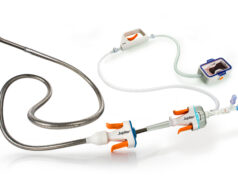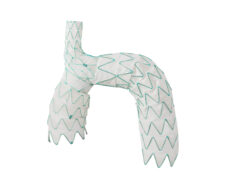St. Jude Medical announced subset data results for the Angio-Seal evolution vascular closure device registry. The results reaffirm the excellent sealing performance of the Angio-Seal evolution vascular closure device in patients undergoing routine diagnostic and interventional cardiac catheterisation procedures.
The Angio-Seal evolution device registry presented at the Transcatheter Cardiovascular Therapeutics 2009 conference, it was the first large scale registry to follow more than 1,000 patients undergoing closure with the Angio-Seal evolution vascular closure device post catheterisation procedures via femoral artery access. The results validated the exceptional performance of the Angio-Seal evolution device after being successfully deployed in 99.7% of procedures and with hemostasis achieved in 97.8% of these procedures by the device. This new subset analysis strengthens those findings by demonstrating no significant difference in deployment success or hemostasis for patients with challenging conditions that might negatively impact device performance, such as obesity and scar tissue at the vascular access site.
“The Angio-Seal evolution vascular closure device registry results demonstrate the benefits Angio-Seal evolution provides for my patients and cath lab staff,” said Dr Robert Applegate. “With 51.5% of patients in the registry having scar tissue at the vascular access site and 48.6% of patients clinically diagnosed with obesity, the registry and subset analysis provide strong clinical data that demonstrate the Angio-Seal evolution has excellent safety and efficacy in challenging patient subsets.”
The Angio-Seal evolution device is designed to enable physicians to quickly and effectively seal femoral artery punctures made during minimally invasive catheter based procedures. Effectively sealing the puncture helps achieve hemostasis quickly, enabling the patient to walk and resume activities sooner than with manual compression.
Since its introduction into the market 15 years ago, more than 15 million Angio-Seal vascular closure devices have been distributed around the world. In addition, more than 325 studies have documented the benefits of Angio-Seal devices for physicians, patients and hospitals.













